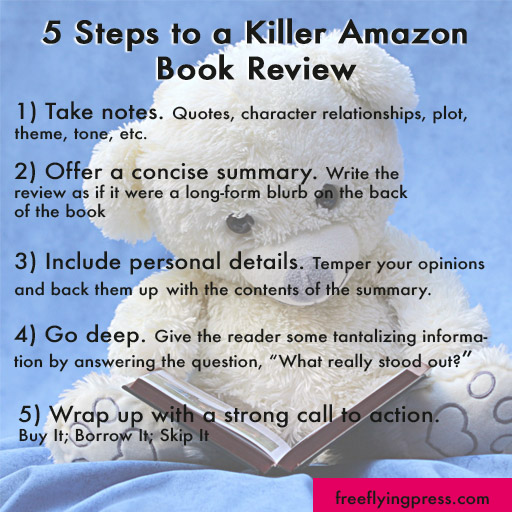How to Write a Book Review
/Book reviews are not all created equally. As a reviewer, you can gain raving fans who hang on your every word...if you know what kind of details to give them, that is. Want to know how to write better book reviews and earn followers?
Take Notes
When you're reading, keep a pencil handy. If you hate marking up the pages of your book, or if you're on a kindle, use a separate notebook. I like to highlight quotes I found particularly delicious, and make a general outline of the character relationships and plot. This will help you when you move onto step 2, which is creating a brief summary.
Often we read a book and then want to talk about it -- but can't remember the details. By taking notes you'll make it so much easier to jump into writing your review so that it's compelling, clear, and spot-on.
Offer a concise summary - but leave out the important details.
The best way I've found to do this is write the review as if it were a long-form blurb on the back of the book. You want to leave tension and mystery so that the reader will want to pick up the book and read it herself.
Look at the backs of other books and get inspiration for what kinds of information you could include and what you should leave out.
It's especially helpful to find a book blurb for inspiration that's in the same genre as the book you're reviewing. Each genre has its own way of appealing to an audience. Ie. a mystery is going to sound different than fantasy or sci-fi.
Putting a summary first lets the reader decide if they're interested in the book depending on the book's own merit, which is why I suggest leaving your personal opinion for after the summary.
If you start off saying "I liked it," or "I found it really dull," you cloud the reader's ability to decide for themselves whether a) they trust your opinion or not, and b) if the book's summary suggests the same.
Once you've laid out the landscape of the book, the reader can then seek your opinion. After hearing about the plot, what you thought about will make a lot more sense than if it came before.
Include personal details by explaining how the book as a whole affected you.
Was it fast or slow? Was the writing on point? Readers want to hear how you felt when you read the book. Once you've established credibility by writing a solid summary, you can offer your own thoughts about the fluidity of the writing or the stilted dialogue.
Be sure to temper your opinions and back them up with the contents of the summary -- you don't want to undermine your credibility by slamming the author when the summary seemed like everything was pretty good.
Go deep.
For a stand out review, go deeper than just stating the plot and how you felt about the book. Give the reader some tantalizing information by answering the question, "What really stood out?"
Character development? Plot twists?
Make sure your language is up to snuff. Readers judge reviews based on how well they read, so please please edit your review and make sure your grammar and spelling are on point.
Wrap it up with a strong call to action.
End by telling the readers what you want them to do. Kirkus review has a rubric their critics like to use:
Buy It = this is a can't-miss, fabulous book; Borrow It = not perfect, but we think you'll enjoy it; Skip It = critical miss
Follow this recipe for a review and you'll build up a stockhouse of raving fans in no time!




